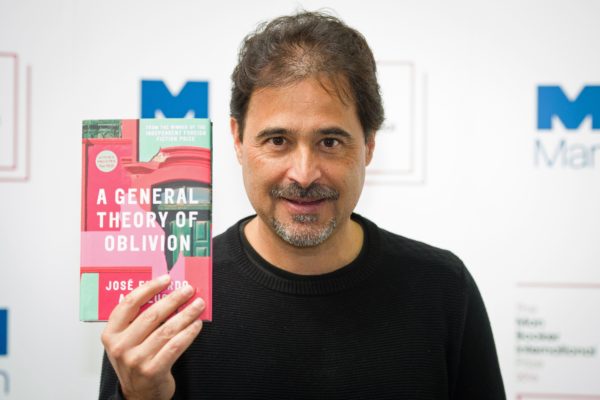
As the country goes through various political upheavals from colony to socialist republic to civil war to peace and capitalism, the world outside seeps into Ludo’s life through snippets on the radio, voices from next door, glimpses of someone peeing on a balcony, or a man fleeing his pursuers.
A General Theory of Oblivion is a perfectly crafted, wild patchwork of a novel, playing on a love of storytelling and fable.








COMMENTS -
Reader Interactions